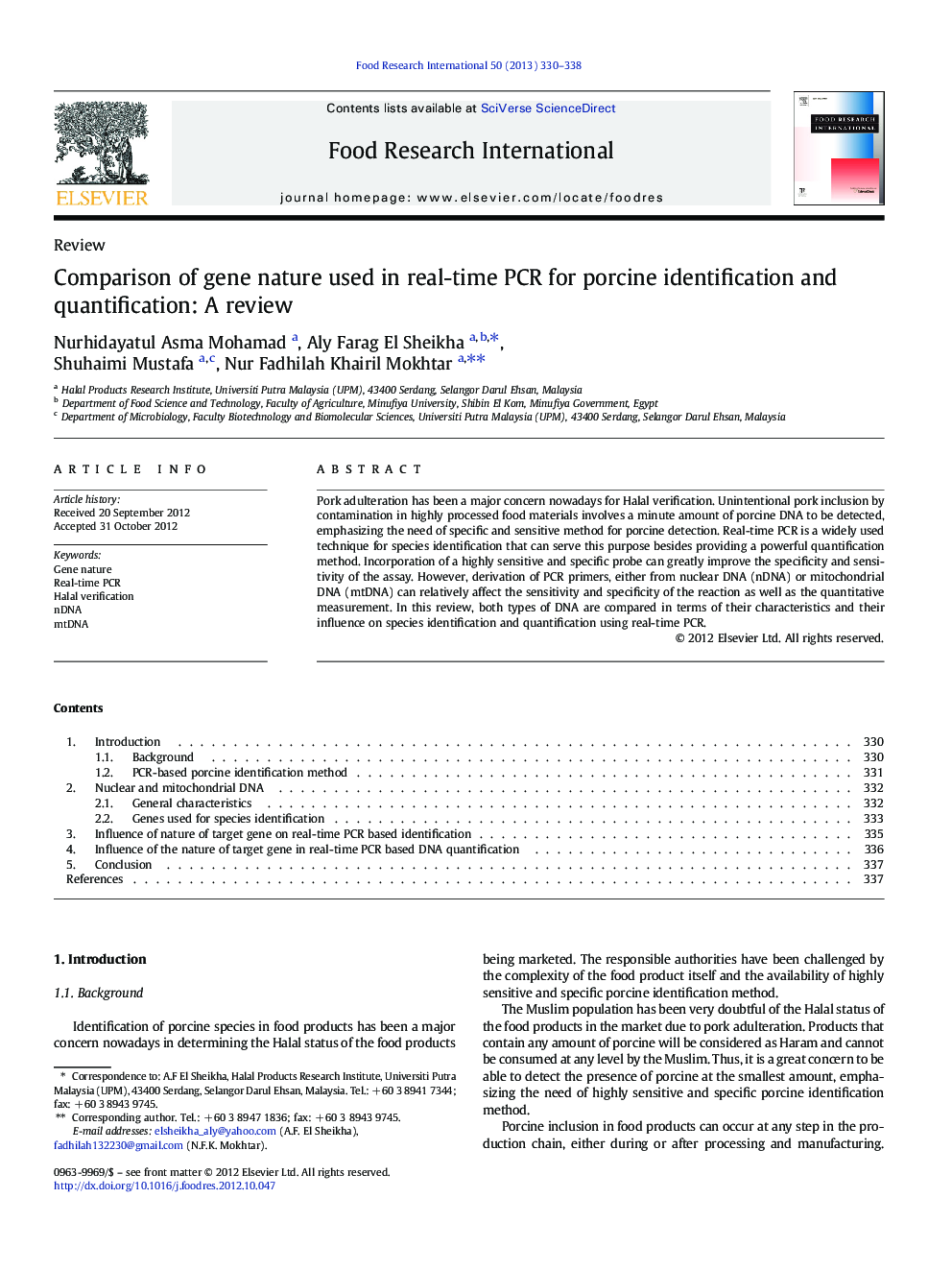| کد مقاله | کد نشریه | سال انتشار | مقاله انگلیسی | نسخه تمام متن |
|---|---|---|---|---|
| 6398885 | 1330685 | 2013 | 9 صفحه PDF | دانلود رایگان |

Pork adulteration has been a major concern nowadays for Halal verification. Unintentional pork inclusion by contamination in highly processed food materials involves a minute amount of porcine DNA to be detected, emphasizing the need of specific and sensitive method for porcine detection. Real-time PCR is a widely used technique for species identification that can serve this purpose besides providing a powerful quantification method. Incorporation of a highly sensitive and specific probe can greatly improve the specificity and sensitivity of the assay. However, derivation of PCR primers, either from nuclear DNA (nDNA) or mitochondrial DNA (mtDNA) can relatively affect the sensitivity and specificity of the reaction as well as the quantitative measurement. In this review, both types of DNA are compared in terms of their characteristics and their influence on species identification and quantification using real-time PCR.
⺠Pork adulteration has been a major concern nowadays for Halal verification. ⺠Real-time PCR is used for species identification and powerful quantification method. ⺠DNA types (nDNA and mtDNA) affect the sensitivity and specificity of PCR reaction. ⺠A review summarizes studies on comparison between types of DNA and their influences.
Journal: Food Research International - Volume 50, Issue 1, January 2013, Pages 330-338